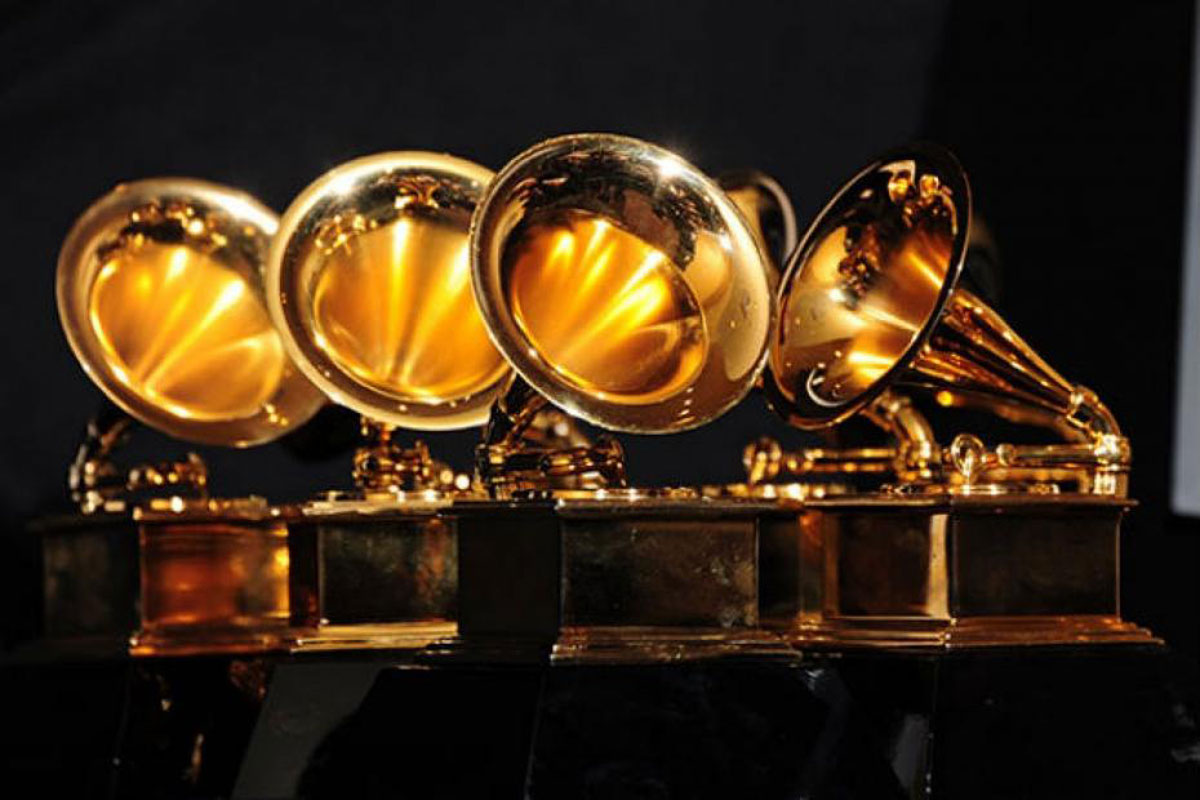Here is an overview of the 2016 Grammy Awards in the classical categories, announced earlier this week. The list is dominated by twentieth century music, both familiar and obscure. Several of the albums are live concert recordings.
Best Orchestral Performance
“Shostakovich: Under Stalin’s Shadow — Symphony No. 10,” Andris Nelsons, conductor (Boston Symphony Orchestra)
This is Andris Nelsons’ inaugural recording as Music Director of the Boston Symphony. The album includes Shostakovich’s Symphony No. 10 (a work we discussed in this past Listeners’ Club post) and the haunting Passacaglia from Shostakovich’s opera, Lady Macbeth of Mtsensk. It’s the first in a series of five live concert recordings called Shostakovich Under Stalin’s Shadow, which will include Symphonies 5-10 as well as shorter works such as Shostakovich’s incidental music to Hamlet and King Lear.
The first movement of the Tenth Symphony unfolds with controlled intensity and a deep, rich approach to sound:
Best Opera
“Ravel: L’Enfant Et Les Sortilèges; Shéhérazade,” Seiji Ozawa, conductor; Isabel Leonard; Dominic Fyfe, producer (Saito Kinen Orchestra; SKF Matsumoto Chorus and SKF Matsumoto Children’s Chorus)
L’enfant et les sortilèges: Fantaisie lyrique en deux parties (The Child and the Spells: A Lyric Fantasy in Two Parts) is a one act comic opera by Maurice Ravel, written between 1917 and 1925. The story involves a disagreeable child who destroys the objects in his room during a temper tantrum. All of these objects come to life and the bedroom becomes a garden of singing plants and animals. The opera includes many beautiful moments (Toi, le coeur de la rose) as well as a handful of operatic inside jokes. The famous “Cat Duet” is thought to be a parody of a Wagner love duet:
Best Choral
“Rachmaninoff: All-Night Vigil,” Charles Bruffy, conductor (Paul Davidson, Frank Fleschner, Toby Vaughn Kidd, Bryan Pinkall, Julia Scozzafava, Bryan Taylor & Joseph Warner; Kansas City Chorale & Phoenix Chorale)
Based on Russian Orthodox texts, All-Night Vigil is among Rachmaninoff’s most mysterious and profound works. This excerpt provides a tantalizing glimpse at the quality of this recording, which combines the Kansas City and Phoenix Chorales. You can learn more about the performers here.
[soundcloud url=”https://api.soundcloud.com/tracks/181792104″ params=”auto_play=false&hide_related=false&show_comments=true&show_user=true&show_reposts=false&visual=true” width=”100%” height=”450″ iframe=”true” /]
Best Chamber Music/Small Ensemble
“Filament,” Eighth Blackbird
American new-music sextet Eighth Blackbird collaborates closely with composers to create some innovative new sounds. This recording includes music by Philip Glass as well as premieres by Bryce Dessner and Nico Muhly. Here is Muhly’s post-minimalist work, Doublespeak:
Best Instrumental Solo
“Dutilleux: Violin Concerto, L’Arbre Des Songes,” Augustin Hadelich; Ludovic Morlot, conductor (Seattle Symphony)
French composer Henri Dutilleux (1916-2013) completed the Violin Concerto L’arbre des songes (The Tree of Dreams) in 1985. It is dedicated to Isaac Stern, who gave the premiere performance. You’ll hear a wide variety of colors in this work, which uses a greatly expanded percussion section. Interludes link the four movements, providing a sense of continuous motion. At one moment towards the end of the Concerto, the sound of the soloist tuning becomes part of the music. Here is the first movement:
Best Solo Vocal Album
“Joyce & Tony — Live From Wigmore Hall,” Joyce DiDonato; Antonio Pappano, accompanist
This recording provides a front row seat for a spectacular 2014 Wigmore Hall recital. American lyric-coloratura mezzo-soprano Joyce DiDonato sings arias and songs ranging from Haydn to Jerome Kern and Richard Rodgers. Pianist and opera conductor Antonio Pappano provides glittering accompaniment. Here is Rossini’s 1835 tarantella, La Danza:
Best Classical Compendium
“Paulus: Three Places of Enlightenment; Veil of Tears & Grand Concerto,” Giancarlo Guerrero, conductor, Nathan J. Laube, organ (Nashville Symphony) Tim Handley, producer
This recording features a collection of music by American composer Stephen Paulus who passed away in 2014. Here is the exuberant third movement of the Concerto for String Quartet and Orchestra, “Three Places of Enlightenment”: III From All Around and Radiating Ever Outward:
https://youtu.be/QykC1xmMUWU
Best Contemporary Classical Composition
“Paulus: Prayers & Remembrances,” Stephen Paulus, composer (Eric Holtan, True Concord Voices & Orchestra)
Stephen Paulus’ Prayers and Remembrances (2011) was commissioned for the tenth anniversary of the September 11 terrorist attacks. This is not a sombre musical memorial. Instead, it moves into the sun with pure, glistening voices combining with splashes of orchestral color. Here is the first movement:
https://www.youtube.com/watch?v=lJA6tkzp3BE


Thanks for the post Tim